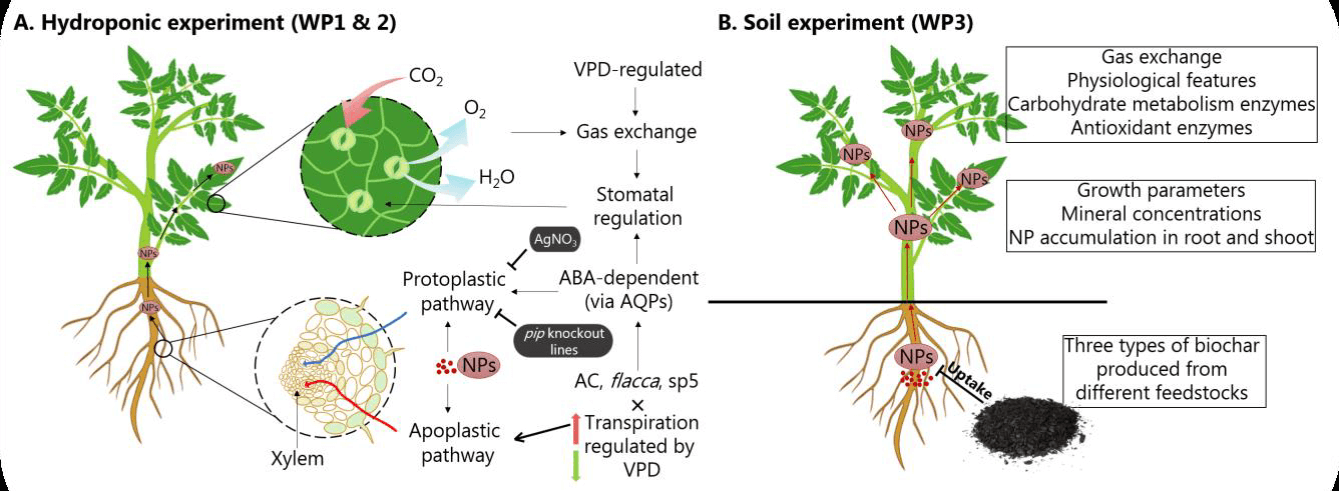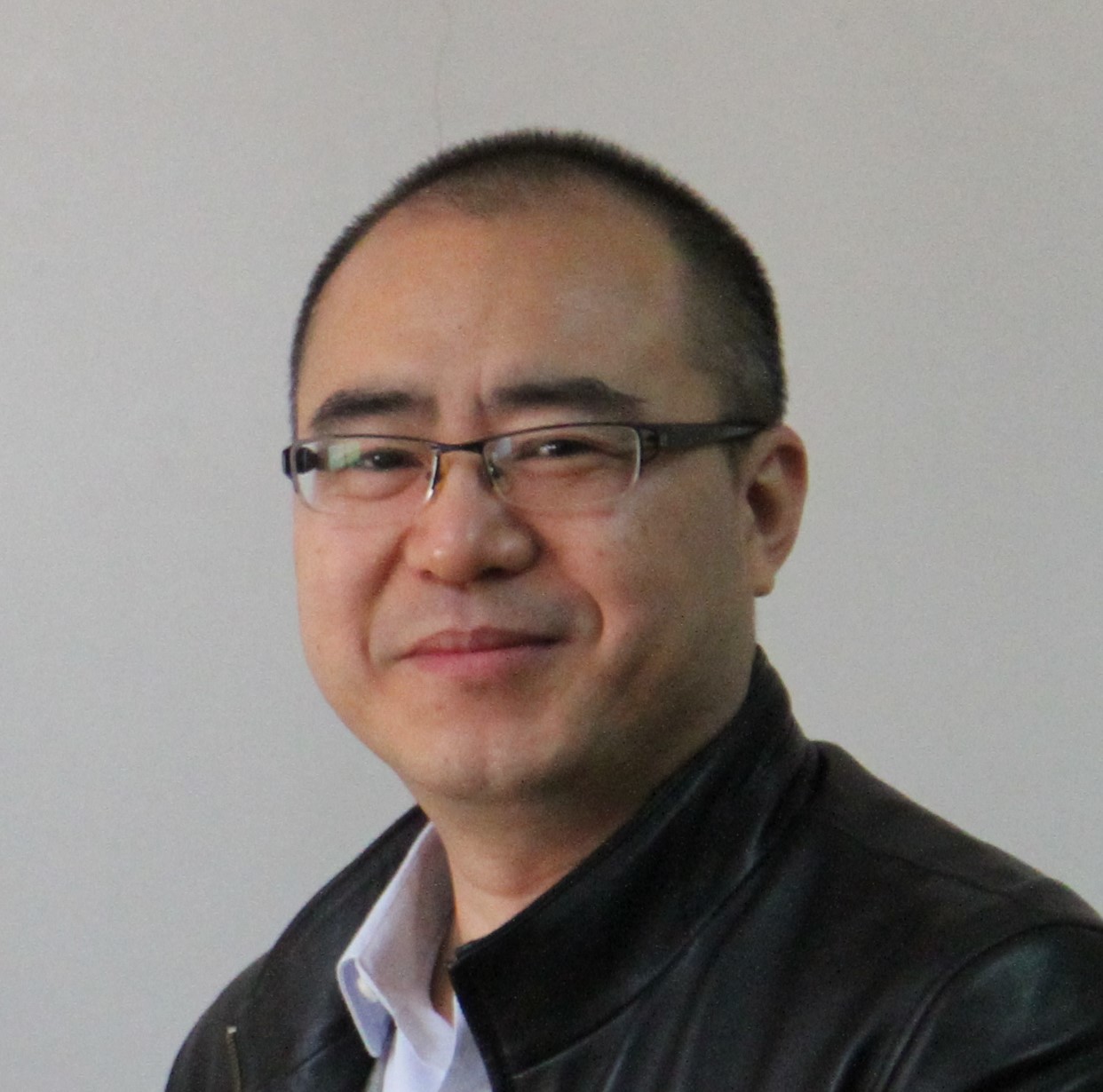Apoplastic versus protoplastic pathway: uptake and translocation of nanoplastics in crop plants (NanoPUT)
 The accumulation of nanoplastics (NPs, <100 nm) in agricultural ecosystems poses a high risk to food safety, threatening human health and sustainable development. Yet, the mechanisms of radial transport in the root and translocation of NPs in the plant remain largely unknown. Crop plants such as tomato (Solanum lycopersicum) and maize (Zea mays L.) are susceptible to environmental contamination by NPs. NanoPUT aims to elucidate the underlying mechanisms controlling the uptake and translocation of NPs in crops and to develop effective strategies to reduce the accumulation of NPs during plant development. The knowledge gained will escort a stable green transition in food sustainability as proposed by the European Green Deal - Farm to Fork Strategy1. We combine critical expertise and innovative methodology in plant water relations, gas exchange and stomatal regulation, hormonal signalling, and bioimaging techniques at the University of Copenhagen (UCPH) and the Max Planck Institute of Colloids and Interfaces, Germany (MPICI) with the specific objectives 1) to identify the primary transport pathway of NPs in plant root systems using hydroponics 2) to quantify the role of the hormone abscisic acid (ABA)-based chemical signalling in mediating root-to-shoot hydraulic conductivity, regulating stomatal transpiration and plant water use efficiency, and consequently, affecting NP uptake and translocation in the xylem, and 3) to reduce the accumulation of NPs in crops and their ecotoxicity and contamination in agroecosystems by adding biochar as a soil amendment in soil experiments.
The accumulation of nanoplastics (NPs, <100 nm) in agricultural ecosystems poses a high risk to food safety, threatening human health and sustainable development. Yet, the mechanisms of radial transport in the root and translocation of NPs in the plant remain largely unknown. Crop plants such as tomato (Solanum lycopersicum) and maize (Zea mays L.) are susceptible to environmental contamination by NPs. NanoPUT aims to elucidate the underlying mechanisms controlling the uptake and translocation of NPs in crops and to develop effective strategies to reduce the accumulation of NPs during plant development. The knowledge gained will escort a stable green transition in food sustainability as proposed by the European Green Deal - Farm to Fork Strategy1. We combine critical expertise and innovative methodology in plant water relations, gas exchange and stomatal regulation, hormonal signalling, and bioimaging techniques at the University of Copenhagen (UCPH) and the Max Planck Institute of Colloids and Interfaces, Germany (MPICI) with the specific objectives 1) to identify the primary transport pathway of NPs in plant root systems using hydroponics 2) to quantify the role of the hormone abscisic acid (ABA)-based chemical signalling in mediating root-to-shoot hydraulic conductivity, regulating stomatal transpiration and plant water use efficiency, and consequently, affecting NP uptake and translocation in the xylem, and 3) to reduce the accumulation of NPs in crops and their ecotoxicity and contamination in agroecosystems by adding biochar as a soil amendment in soil experiments.
Funded by:
Apoplastic versus protoplastic pathway: uptake and translocation of nanoplastics in Crop plants (NanoPUT) has received a three year funding from DFF
Project: Apoplastic versus protoplastic pathway: uptake and translocation of nanoplastics in Crop plants (NanoPUT)
Period: 01.03.2025-01.03.2028
Project leader
 Fulai Liu
Fulai Liu
Professor
fl@plen.ku.dk
+45 35 33 33 92

